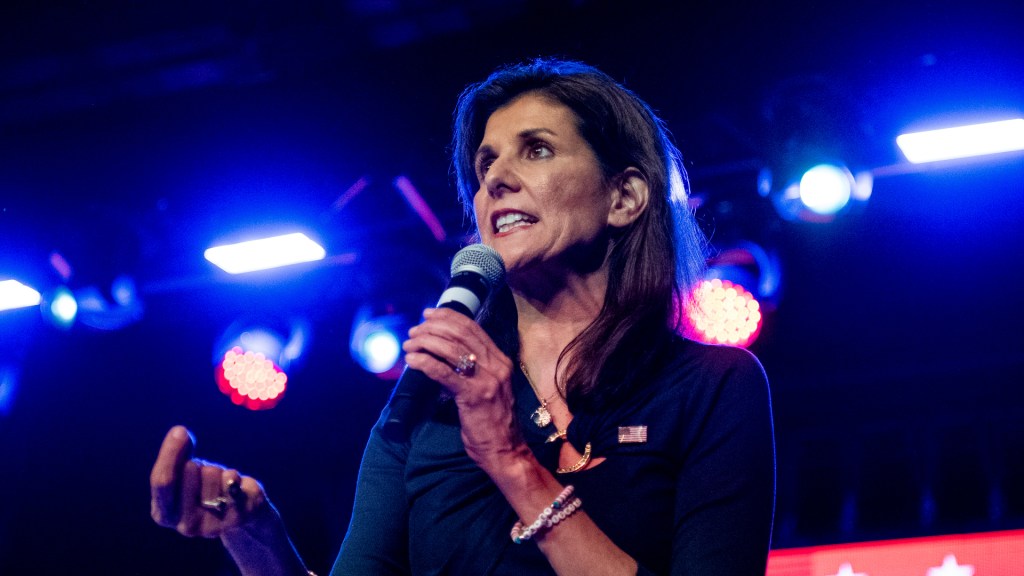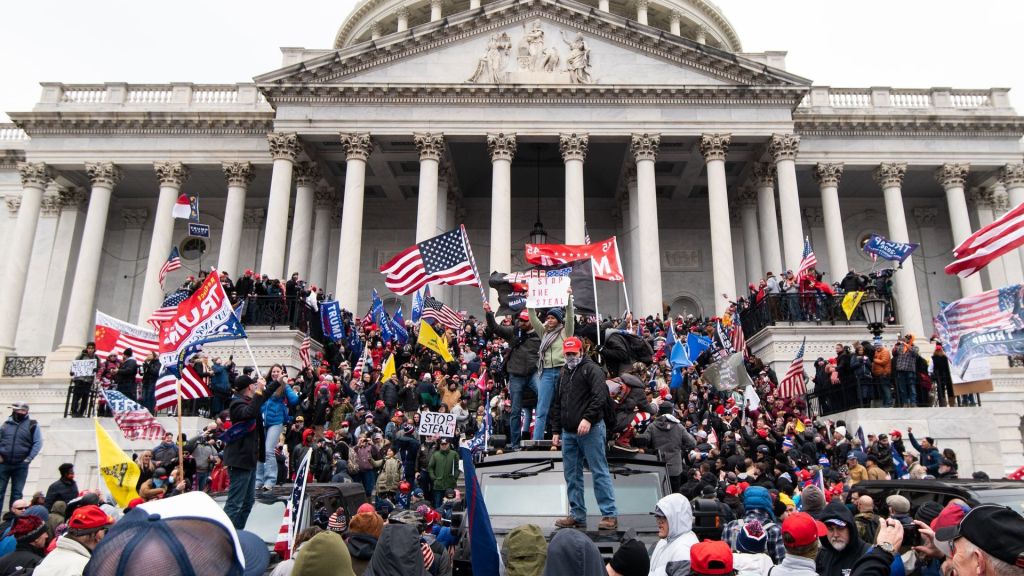Commentary
-
Our commentary partners will help you reach your own conclusions on complex topics.
All right, the US Supreme Court is here with a case about marriage. And if private companies can discriminate against individuals who are
same sex, same sex couples, gay marriage, lesbian marriage, all right? Once again, we’re here. Isn’t that ironic that every time we hear about one of these religious exceptions, it’s never to create love coalition unity, it’s always to say one thing, can we legally discriminate against somebody? That’s it? I thought we settled this in 2015. Obviously, we did not. So let’s look at the current case. There’s a design company owner, whose name is Miss Laurie Smith, Laura Smith says, Well, you know, I do actually serve gay people. But I’m about to start a new company inside of the company, a new venture, a new service. And this new service deals with weddings, and I don’t want to serve gay people, as relates to this new service. So the argument from one side says, Well, you know, she has the right under her own freedom.
In order to discriminate, she has this right. But Colorado law says, No, you do not. You see, members of the lesbian and gay community are part of a protected class, similar to black folk, a part of a protected class, there’s protected classification, based on the statutory law of Colorado, it extends to businesses that are open to the public, that serve the public. Why is that so important? That’s important, because you know, the public, they’re the ones who pay taxes, and your business, your private business benefits from the Texas private individuals pay. And they still no matter if they like your company or not part of their taxes will go to protect your company, not only through some tax abatements, but also if you call 911, you own a company you call 911. Guess what? Now when one arrives, the police, fire rescue ambulance, whatever you need, well, who undergirds that for you for the business? The taxpayer does, the taxpayer has to pay that regardless of their affinity to you as a company. So in exchange, you have to serve the community, regardless if you as a company agree with the individual or not. Now, this is a slippery slope here. If the justices decide that a public company or a company that is allowed to be frequented by the public, if they say yes, this company can legally discriminate.
Something would change in this nation. Let me read exactly what Justice Sotomayor said. And now you agree with the justice on this concept. She said and I quote, this wouldn’t be the first time
in the courts history.
Where commercial business open to the public, serving the public, that it could refuse to serve a customer based on race, sex, religion, or sexual orientation. Keep in mind, precedent is powerful. If you say a business can legally say no, to a same sex couple.
What stops them from saying no, because people happen to be black, brown, anything else? It opens a floodgate is bad policy. It will be a bad ruling. But based on reading of the tea leaves, there seems to be some justices conservative, obviously, who are supportive of this idea. At the end of the day, the decision is this. What kind of country do you want to live in?
-
There is no GOP, there is only MAGA
Donald Trump faces a range of potential criminal charges across numerous cases, from minor civil suits all the way up to sedition and conspiracy against the United States. The former president has consistently portrayed himself as a victim of political “witch hunts” and has sought to delay his court dates to avoid criminal sentencing prior…
-
Narrative of Jan. 6 attack reveals conservative bias, spin
On Jan. 6, 2021, supporters of then-President Donald Trump overpowered police and federal officers, broke into the U.S. Capitol, and then searched the Capitol and surrounding areas for specific Congress members to kill or take hostage in an attempt to overturn the results of the 2020 election. While some took to social media and threatened…
-
Former RNC Chair Ronna McDaniel grifted her way into NBC
Just a week after NBC hired former RNC Chair Ronna McDaniel as a political contributor, a wave of public outcry from several of the network’s stars compelled it to reverse its decision. McDaniel had joined shortly after stepping down from her role at the RNC, where she had vocalized support for former President Donald Trump’s…
-
Why doesn’t ‘billionaire’ Trump have money to pay fraud judgment?
Former President Donald Trump has until Monday, Mar. 25 to come up with a $464 million appeal bond to meet a New York court’s civil fraud judgment. Despite being the likely Republican presidential nominee, he’s struggling to find a company willing to provide the bond. Trump tried to get a bond for the full amount,…
-
With Trump at helm, Republican Party is no more
Shortly after allies of former President Donald Trump took key leadership positions within the Republican National Convention (RNC), numerous staffers were terminated. Chris LaCivita, Trump’s senior campaign adviser and RNC chief operating officer, said the RNC would operate more efficiently. On March 8, Lara Trump, Trump’s daughter-in-law, assumed the role of committee co-chair, while Michael…
Latest Opinions
-
 Straight Arrow News
Straight Arrow News
Could the US see a Trump-Harris White House after the 2024 election?
-
 AP Images
AP Images
Saudi Arabia says report it helped Israel in defense against Iran is fake
-
 AP Images
AP Images
Germany transport minister criticized after proposed 2-day driving ban
-
 Getty Images
Getty Images
NPR editor suspended for unauthorized essay accusing network of bias
-
 Getty Images
Getty Images
Boeing defends aircraft safety before Senate hearing
Popular Opinions
-
In addition to the facts, we believe it’s vital to hear perspectives from all sides of the political spectrum.


